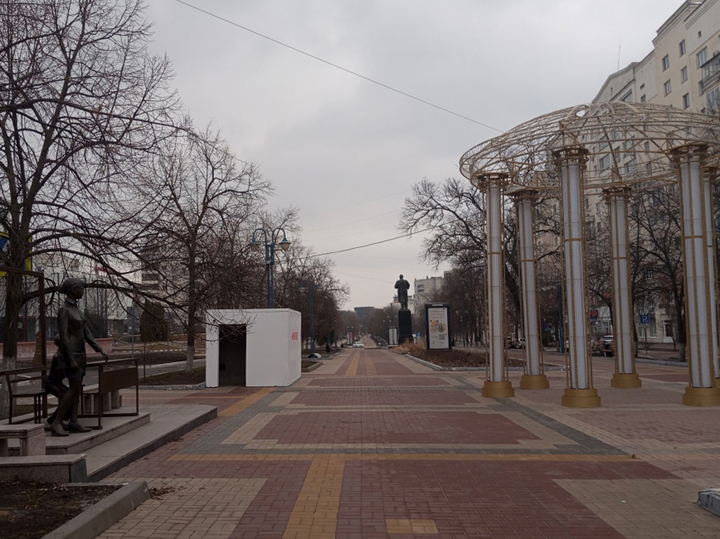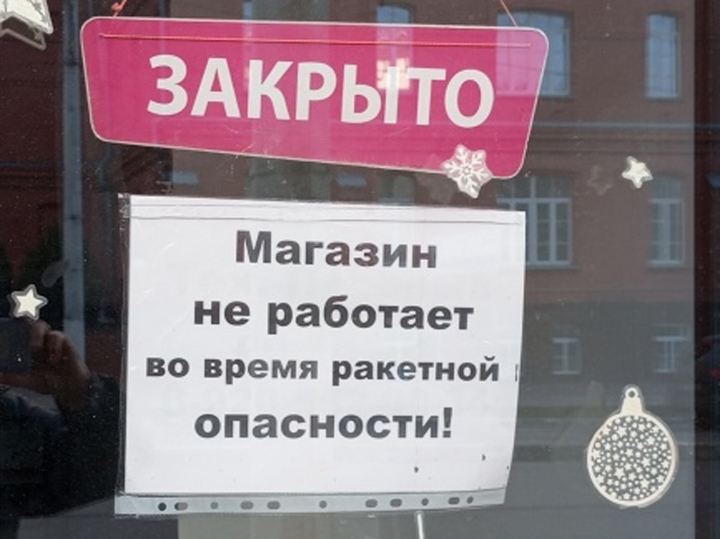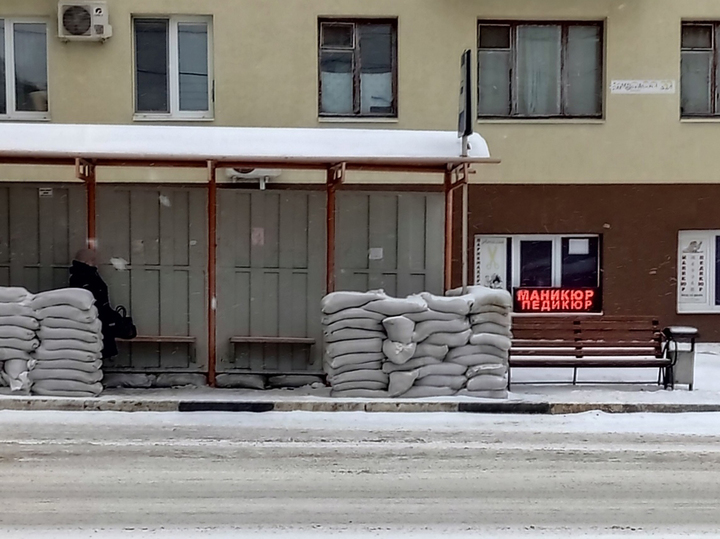A native of Kharkov, the poet Minasov expressed confidence that his hometown will return to Russia
[ad_1]
The poet Stanislav Minakov was forced to leave Kharkov in 2014 and move to Belgorod – that spring, the first Ukrainian shells exploded in Donetsk and Lugansk, and the beginnings of the “Russian Spring” in the Kharkov region were suppressed, so the choice of a new place of residence seemed ideal. But at the beginning of 2022, Belgorod for the first time entered the word “arrivals” into its dictionary, and as a result, the epithet “long-suffering” was firmly entrenched in the city. MK did three short interviews with Minakov – in April 22, then in the summer and autumn of 2023. Today, when rocket and MLRS attacks have become especially fierce, it is quite logical to ask whether the writer plans to move even further from the border with his second homeland.
– For me, leaving Kharkov or Belgorod is not only a state issue, but also a personal one, since my ancestors, the Minakovs, existed between these cities for a century and a half. In this sense, I have nowhere to run further and there is no need: here I grew up, here I spent the second part of my life and my parents died here; Now I am in the apartment that our family received in Soviet times. As they say, there is nowhere to retreat, Moscow is behind us.
– Over the weekend, a video made from recordings from Belgorod street cameras spread online. From this video, it seems that your situation is bordering on critical. Is it so? Did your house specifically come under fire?
“It didn’t hit my house, but it did fly fairly close—to the neighboring blocks several times.” When you’re sitting at home, it’s not so scary – after all, you’re closed in by concrete or brick walls. On the street, when a missile attack begins, you duck into a gateway or some kind of arch. And in an open place you realize that you are in real danger.
Belgorod is not hit as often as shown in the accelerated video: since December 30 it has been very intense, for the last week – once or twice a day, but each time it leads to tragic consequences and considerable destruction.

– What do you think is the historical meaning of today’s events?
– Before our eyes, the reunification of primordially Russian lands is taking place. I constantly remind you – including in the just published book “Russian Kharkov” – that this city was established by decree of Alexei Mikhailovich the Quiet, the second tsar of the Romanov family. And Belgorod was founded 50 years earlier by Fyodor Ioannovich, the last Rurik ruler. So we are returning ours, as it was with Crimea, the only thing I regret is that we are doing this only now, and not in 2014.
– The Kharkov region is not among the new regions of Russia annexed during the Northern Military District, but the Kharkov People’s Republic could well have taken place ten years ago. Do you think Kharkov will return after all – and if so, at what cost of destruction?
– How it will all end, only God knows, but we only hope. But I hope that Kharkov will return to the country from which it was torn away. At the cost of what losses – again, it is impossible to predict, perhaps in some miraculous way – the Lord will manage it this way – the city will become ours. But I have been an opponent of this border (between the East of Ukraine and Russia) since 1991, and it has been strengthened, overgrown with customs and checkpoints, although in the 1980s there were 18 trains a day between Kharkov and Belgorod, and the whole journey took an hour and a half. I can’t believe that now there are NATO tanks on the other side of the cordon, that DRGs are penetrating us from there and larger forces are attacking… Something will inevitably have to be done about this.

– Personally, have you gotten used to the “bangs”, learned to live side by side with hostilities, and come to terms with the front-line situation?
– It’s impossible to get used to explosions, especially if they are increasing in intensity, and you’re waiting for what’s about to hit your window. In fact, partly there is addiction; a person adapts to any conditions.
But the reality is that there are fewer people on the streets, many are hiding, others have left, taken their children, and yet life goes on.

– Did you expect that Ukraine would start shelling Belgorod with such tenacity and harshness?
– Did we expect that during the “Maidan” in the center of Kyiv these ghouls would start killing Berkut officers and young boys from the internal troops? Did they expect that they would start burning Odessa residents and bombing their own citizens in Donbass? They did not expect. However, all this has become a reality, and it cannot be ruled out that it will get even worse.
– But Russia will win?
– I have no doubt about this…
– Have “military” themes finally become woven into your work? Quote something you’ve recently written.
– Creativity is a reflection of the real and the unreal using feasible instruments: akyn sings about what he sees and feels, what his “past and thoughts” are about. In April, in St. Petersburg, God willing, a book of my poems will be published – selections from forty years. And to start a conversation about poetry and life – the following lines:
I wake up quietly, without an alarm clock,
I take the prosphora from the refrigerator –
lived, you know, until this hour.
Good Sunday Forgiven.
Here and there – native baptized Rus’.
Rhyme: Air defense and air defense…
This is a stanza from the poem “Forgiveness Sunday,” written on March 17, 2024.
From the editor: while this interview was being recorded and re-read by the interlocutor, Stanislav Minakov reported two shellings, the second poet was caught while walking, a minute’s walk from the entrance. Fortunately, he was not injured – explosions were heard high above his head, once again the air defense did its job perfectly, shooting down nineteen “vampires”.
[ad_2]
Source link






